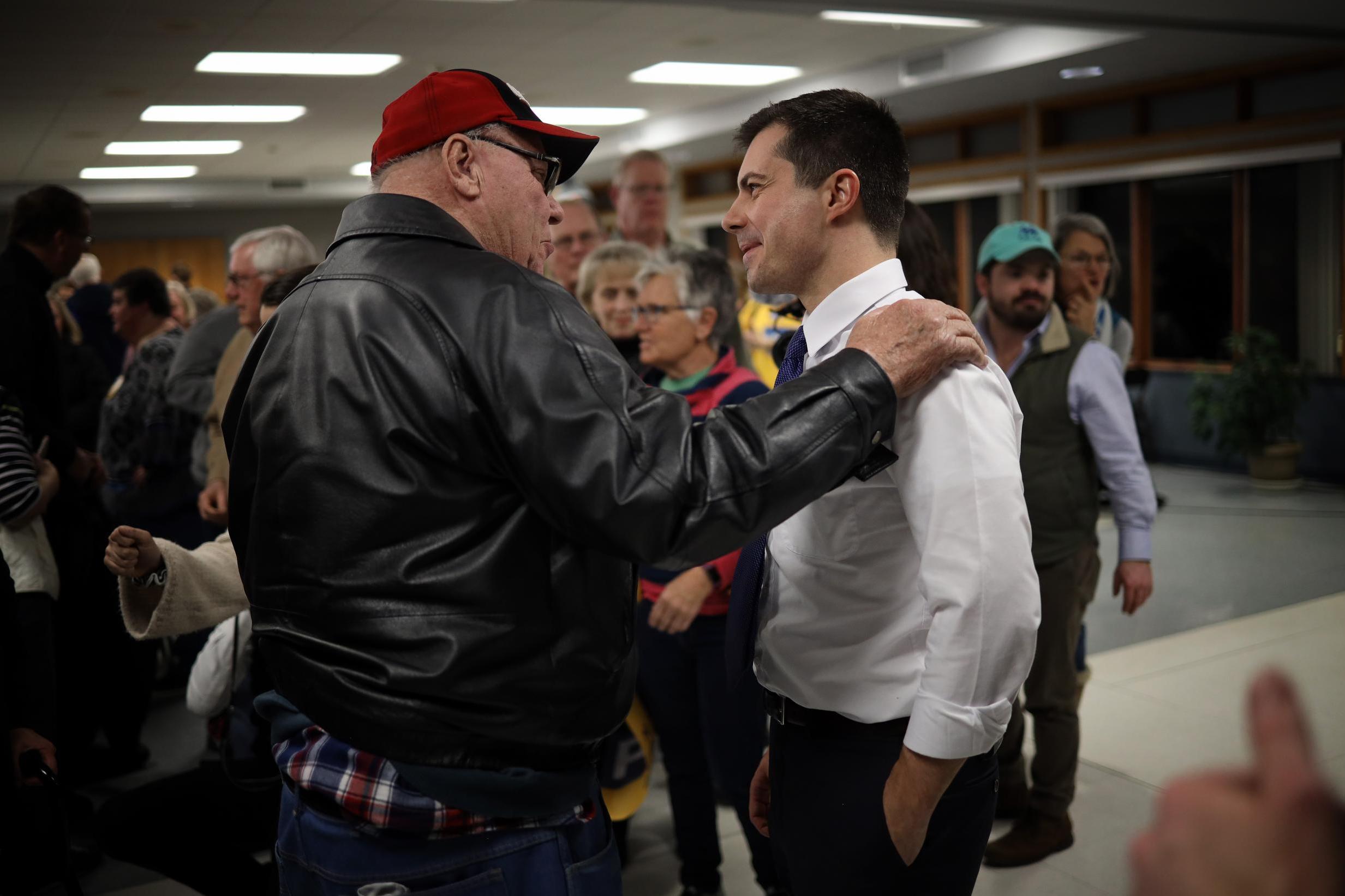The Independent's journalism is supported by our readers. When you purchase through links on our site, we may earn commission.
Confused about the Iowa caucus? Don't be — it's just a fun little block party for white people that changes American history
The most consequential election in a generation may end up hingeing on whether or not Karen has time to make brownies


Your support helps us to tell the story
From reproductive rights to climate change to Big Tech, The Independent is on the ground when the story is developing. Whether it's investigating the financials of Elon Musk's pro-Trump PAC or producing our latest documentary, 'The A Word', which shines a light on the American women fighting for reproductive rights, we know how important it is to parse out the facts from the messaging.
At such a critical moment in US history, we need reporters on the ground. Your donation allows us to keep sending journalists to speak to both sides of the story.
The Independent is trusted by Americans across the entire political spectrum. And unlike many other quality news outlets, we choose not to lock Americans out of our reporting and analysis with paywalls. We believe quality journalism should be available to everyone, paid for by those who can afford it.
Your support makes all the difference.While it may feel as if the Democratic primary has been going on for 84 years, I regret to inform you that it’s really only just getting started. Ours is an era of grotesque polarization ground through a seemingly endless electoral process. We are a country that has been gaslit to exhaustion and divorced from anything even remotely resembling unity, and so I submit to our search for consensus a question of public interest: My fellow Americans, can we at least agree that the Iowa caucus is a joke?
On Monday, February 3rd, eligible citizens from the more-than-90%-white state will gather in 1,678 precincts across those 99 counties between the Missouri and Mississippi rivers. You’d be forgiven for not knowing what the hell a caucus is. Indeed, the process is so complex, the Davenport Public Library hosted a training session with fruits as stand-ins for primary candidates. The whole thing is mind-numbingly complex even for Iowans, but you don’t need a political science degree to know it’s bonkers that American governance is significantly impacted by a handful of white people huddling in high school gyms, private living rooms, and at least one grain elevator.
For the Democratic party, the Iowa caucus occurs in the open, with eligible citizens gathering in the corners to signal allegiance to their preferred candidates. Any campaign that receives support from 15% of the people in attendance is guaranteed delegates, calculated by a formula that is sent off to the county level. If a candidate receives less than 15% of attendees, their voters must choose a new candidate, and that’s where the “caucusing” happens, as friends and neighbors attempt to convince each other to stand in support of their pick. It’s basically a fun little block party that could forever change the course of American history.
As legend has it, there are "three tickets out of Iowa,” which really just means that a lot of the media is already gearing up to make declarations about the viability of the top three delegate-getters, despite those results being swayed by a few thousand people in either direction. Think about it. Iowa has a population of less than three million, and only a minority participate in the caucus. In 2016, less than 16% of eligible voters showed up. That means that the preferences of roughly 0.00000625% of the US population could make the difference between a supposedly legitimate candidate and the end of a campaign. There is a laundry list of reasons why the Iowa caucus is absurd, and not the least among them is that snacks are allowed. Indeed, the most consequential election in a generation may hinge partly on whether or not Karen has time to make brownies.
Over the past half-century, Iowa has been granted increasingly outsize significance in the Democratic primary. The state is now a Holy Grail of political speculation, regularly discussed with such microscopic fascination that it sometimes seems as if we’re about two articles away from deducing election results through forensic analysis of a leftover pork chop. National publications cover the size of Iowa campaign operations with consistent updates, logging the hours each candidate spends on the ground, and dispatching reporters to steakhouses and bowling alleys, as if the fate of the nation hangs on the outcome of a ritualistic scavenger hunt. And, really, maybe it does.
But if you trace the story back to its origin, you’ll find the whole thing is based on a lot of made-up bullsh*t.
The Iowa caucus started in 1972, after the 1968 Democratic National Convention erupted in riots spurred by the Civil Rights Movement and Vietnam War. Faced with unrest, Democrats decided they needed a more accessible means of picking a nominee. They changed the caucus procedure to move from precincts to districts to counties and finally the state and national level, a process that was complicated by figuring out venues for each event, and the pesky fact that the party only had one old mimeograph machine to work with. Based on those logistics, an Iowa Democratic official suggested it would take about a month between each stage, and spit out a date.
With that singular guestimate, Iowa claimed first-in-the-nation status, though it wasn’t until 1976 that the caucus stepped into its mythical proportions. That year, then-peanut farmer Jimmy Carter travelled around the state chatting with Iowans, debuting one of the earliest playbooks for the one-on-one schmoozing of retail politics. He came second in the caucus, losing to the “uncommitted” category. Yep, those people who showed up and said “IDK” with total conviction outnumbered any of Carter’s fans, but soon enough, that didn’t matter. Carter seized on the results in interviews the next day, leveraging his “win” for legitimacy, and the rest is history.
The Iowa caucus is a painfully excellent example of American political lore. It should be maddening that less than three million mostly white people are given precious time and resources by candidates seeking to lead the entire American population. It’s bonkers that the whole thing is conducted in weird rooms of friends packing snacks. It’s ridiculous that we’re meant to buy into Iowa as an event of hallowed national significance, despite the fact that it started with some dude looking at a calendar.
Reflecting on the myth-making of Iowa makes for a much-needed paradigm of critical thinking. There are many ideas so thoroughly baked into Americana that we’ve forgotten to question them, and this era presents a rare opportunity to re-interrogate how we live together. Our ongoing democratic crisis means that all of our norms and values are up for debate. I’ve heard that phrase stated with the qualifier, “for better or for worse,” and while I think it’s clear this chapter in history could most accurately be called “America and the Terrible, Horrible, No Good, Very Bad Day,” it’s crucial that we expand our imagination to include possibilities that are better than what we’ve seen thus far. The whole thing is made of cardboard. The key to building the equitable future we all deserve is to constantly ask questions of authority, and of ourselves.
Often, the people of Iowa are treated as if they are some rare, exotic species, as if their DNA is comes preloaded with Aesop’s Fables. Former DNC chairwoman Donna Brazile espoused this notion in a recent interview with the New York Times. “While it doesn’t look like America, when they take into consideration the qualities and values we’re looking for in a candidate, I believe that they represent what is truly best about our country,” she said. “They’re smart and they take this seriously.”
It’s ludicrous to presume that critical thinking might be bestowed by anything as arbitrary as a zip code. What truly distinguishes Iowans is that they are given a real stake in shaping the future of the nation, and one has to wonder if that might be true for the average American, if we could reasonably feel as if our votes made a difference.
The arcane absurdity of the Iowa caucus spotlights the alienating mechanisms that box out the majority from even the most basic understanding of governance. As the status quo continues to perish in the flames of impeachment, it is imperative that we rise from the ashes insistent on building a system of government in which each and every person in this nation is on equal political footing in the process of selecting our most powerful leader.
Either that, or maybe we can let a groundhog decide.
Join our commenting forum
Join thought-provoking conversations, follow other Independent readers and see their replies
Comments